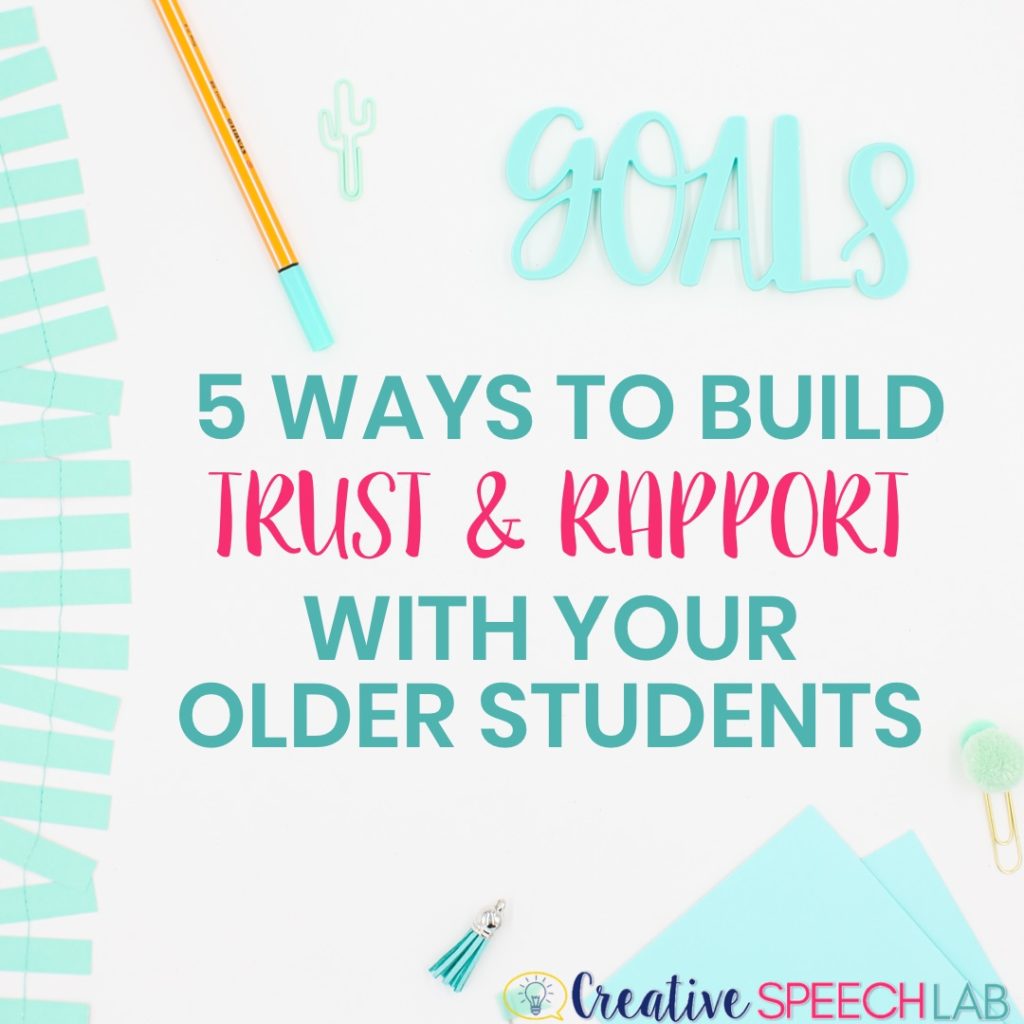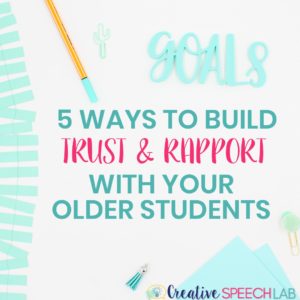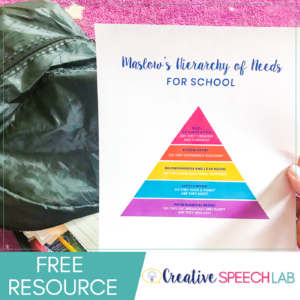It can sometimes take a bit longer to build trust and rapport with your older students, but it’s incredibly important. Why? The work we ask them to do can feel frustrating and vulnerable for them at times, which means they need a safe space. If you want them to take ownership of their goals and feel motivated, then having a rapport and working as a team can help make that happen.
Here are my top 5 tips for building trust and rapport with your older students!
1. Learn what matters to them on Day One.
Everyone has hopes and dreams. Find out what your students really care about. What do they want to be when they grow up? What is a personal goal they have? You can almost always connect their personal goals to their speech and language goals.
In fact, I have a freebie that helps with this exact exercise. Grab it here to build rapport and help your students connect their speech and language goals to their broader life goals.
2. Make it Personal.
This doesn’t take much prep at all. In fact, it’s really more of a mindset shift. Choose materials that fit themes that interest them (e.g. news articles related to their favorite athlete).
Here’s an example of how to spontaneously work on vocabulary in a way that’s personal and builds rapport with your students. Once you take the time to get to know what your students care about, write out some sentences with novel vocabulary to practice using context clues. (I once did this with a student to let him know that I really listened and cared about his life and it seemed to mean a lot to him).
Example:
You feel lethargic after practicing football for 3 hours straight on Saturday.
It isn’t hard to write sentences about your students when you’ve taken the time to get to know them!
3. Use materials related to their stage of life.
There is so much you can work on from a speech and language perspective when it comes to job skills. This is such a meaningful way to support your students as they grow, which deepens your relationship with them. Taking the time to research jobs (while working on vocabulary and reading comprehension), practice interview skills (and all of the communication that goes along with them) and review job skills, supports them in a way that they will likely always remember.
I’ve also helped older students prepare for their driver’s exam (i.e. understanding symbols, signs, rules and the written portion of the exam). This can go a long way academically, functionally and personally.
4. Give them some control
Build trust by trusting them to make their own choices. Something as simple as letting them choose what to work on first can feel empowering. When appropriate, let them help you decide the best ways for presenting information to them. For instance, do they prefer learning with visuals, technology or more hands-on methods? Let them give feedback about how they best learn and want to learn.
I hope these ideas help as you work on building trust and rapport with your older students. Any other tips you have? If so, comment below to let me know!
5. Meet them where they are.
If your students feel hungry or in distress, chances are they want to be in the presence of an adult who really cares about them. I created this free Maslow Hierarchy for Schools poster as a reminder to take a moment to reflect on that during each interaction.
Grab this FREE download in the special freebie library I created to show you some SLP love! Simply sign up below and your freebie library e-mail will be sent straight to your inbox!






2 Comments
I’m excited for resources for older kids!
I’m so glad you’re finding it helpful!